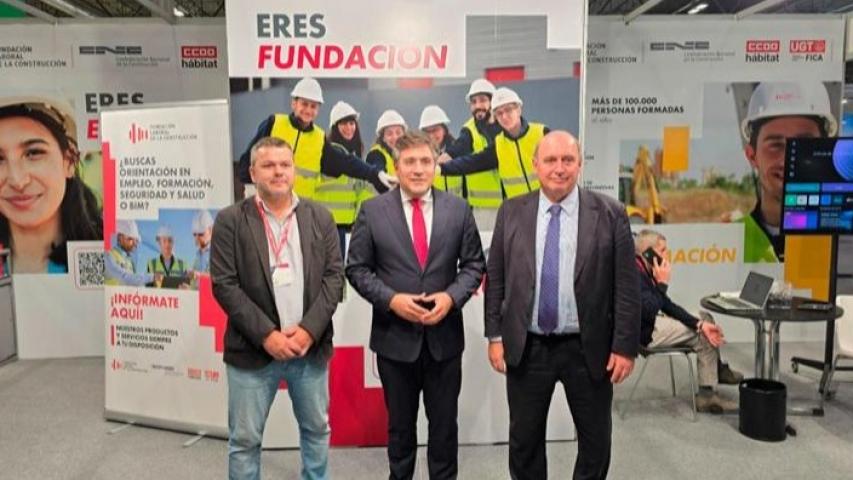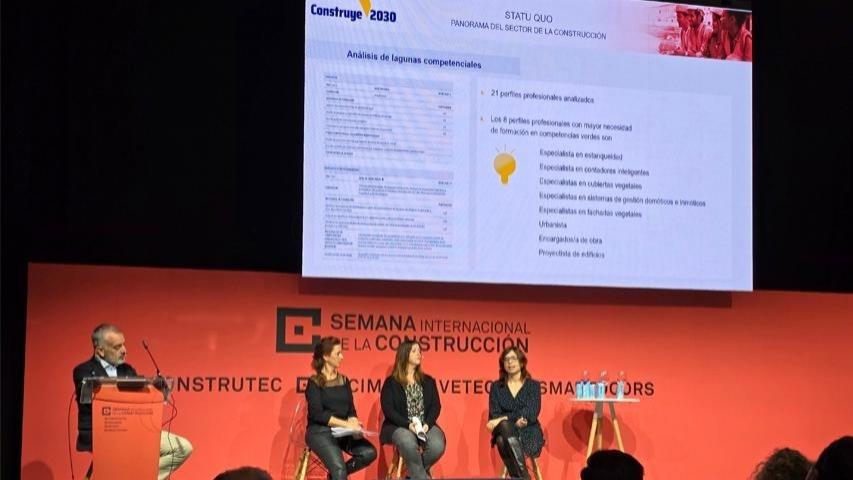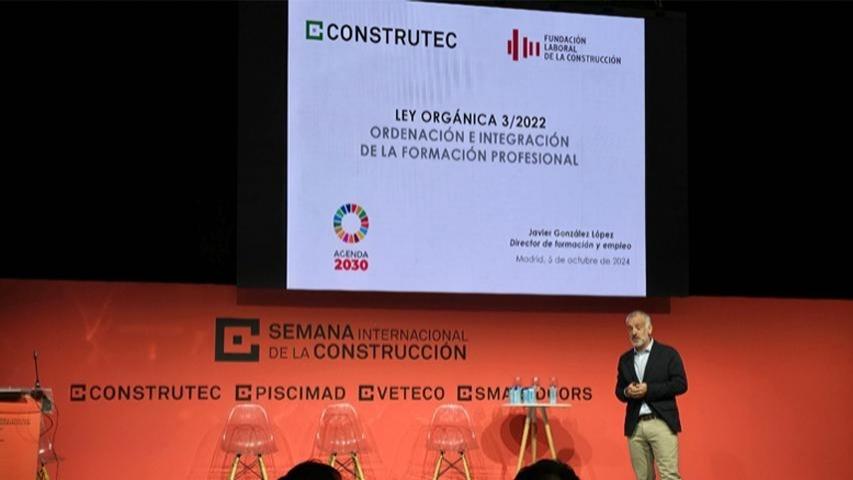Construtec highlights the need for skilled labour force and training as a key tool for the transformation of the sector
During the International Construction Week (Ifema), Fundación Laboral de la Construcción analysed sector initiatives in the qualification of professionals, the implementation of the Vocational Training Law and the training and employment needs of SMEs.
The International Construction Week, which was held from 5th to 8th November at Ifema Madrid, hosted the Training Forum and the Social Forum, organised by Fundación Laboral de la Construcción, as part of the Construtec trade fair.
Throughout the day on 5th November, different experts from the sector analysed the current situation in the construction sector from the point of view of training, the need for training and employment in companies. In the morning, the Training Forum put on the table several European projects aligned with the innovation strategy in training for the sector, focused on revitalising the image of construction, improving its attractiveness for women and young people, and proposing new innovative training methodologies that help to bring construction closer to the public.
This is the case of 'BuildOffsiteEU' (co-funded by the Erasmus+ programme of the European Commission) presented by Matilde Daganzo, International Projects Technician at FLC, who emphasised the development of this training project ‘to help trainers and trainees in the transition from traditional to industrialised construction’.
Silvia Santos, International Projects Technician at FLC, presented the 'Pact4Youth' initiative (co-funded by the Erasmus+ programme) who highlighted ‘the employability of young people in construction, through the reinforcement of green and digital skills’.
Esther Rodríguez, International Projects Technician at FLC, presented the results of 'Construye 2030', a BUILD UP Skills project developed between 2022 and 2024 that has already been continued in 'Construye 2030plus' (2024-2027), framed within the LIFE programme led by FLC, whose objective is to increase the number of professionals qualified in sustainable construction throughout the value chain.
During the presentation on the implementation of Law 3/2022 on the organisation and integration of Vocational Training in the construction sector, Javier González, Director of Training and Employment at FLC, stressed that ‘the key to this new law lies in the combination of training, accreditation of skills and guidance’.
With regard to the round table dedicated to the training and employment needs of SMEs in the sector, Antonio Zerolo, CEO of the company Anzeve, stressed that ‘Vocational Training must be provided and permeate all strata’ and stressed that ‘qualification must be continuous, based on people’. In this sense, Javier Díaz, manager of Preinfa, wanted to highlight that companies ‘must invest in being more efficient and a fundamental lever is the training of their professionals’. For his part, Javier González, Director of Training and Employment at Fundación Laboral, as moderator of the round table, pointed out that only 9.2 % of workers in the sector are young and also that 35 % of professionals will retire over the next few years, so it is necessary to find manpower. ‘Parents, counsellors and trainers should prescribe more jobs in construction to young people,’ he remarked.
Social Forum at Construtec
During the afternoon, it was the turn of the Social Forum, organised by Fundación Laboral de la Construcción, where the Cionitia conference was held, led by Laura Castela, Director of Communication, Digitalisation and Alliances at FLC, who presented this initiative launched by the joint entity to improve the image of the sector and bring it closer to young people in an innovative way: through gamification based on the Escape-room, and where they are presented with a series of challenges to be solved by teams under the dystopia ‘Can you imagine a universe in which the construction sector has come to a standstill? ‘.
Next, it was the turn of the 'Women Can Build' project, on the promotion of women's training in construction. Rosalía Sánchez, International Projects Communication Technician at FLC, explained the work of FLC in promoting equal opportunities and boosting the presence of women in construction, highlighting projects such as 'Women can Build', which began in 2017 and is currently running the second edition of this initiative, co-funded by the European Union, which will be transferred to Latin America.
Finally, Puy Jiménez, head of Employment at Fundación Laboral de la Construcción, was in charge of presenting the ‘Cimientos para el Empleo’ project, which aims to promote employment in the construction sector through socio-labour intermediation tools. ‘In this project -she explained-, funded by the Ministry of Social Rights, Consumption and Agenda 2030, more than 1,300 people participated in 2023, including unemployed groups interested in entering the sector, primary and secondary school students, vocational guidance technical staff, professionals from the sector and companies. Now we are starting the second edition with a lot of enthusiasm and challenges to achieve’.


















